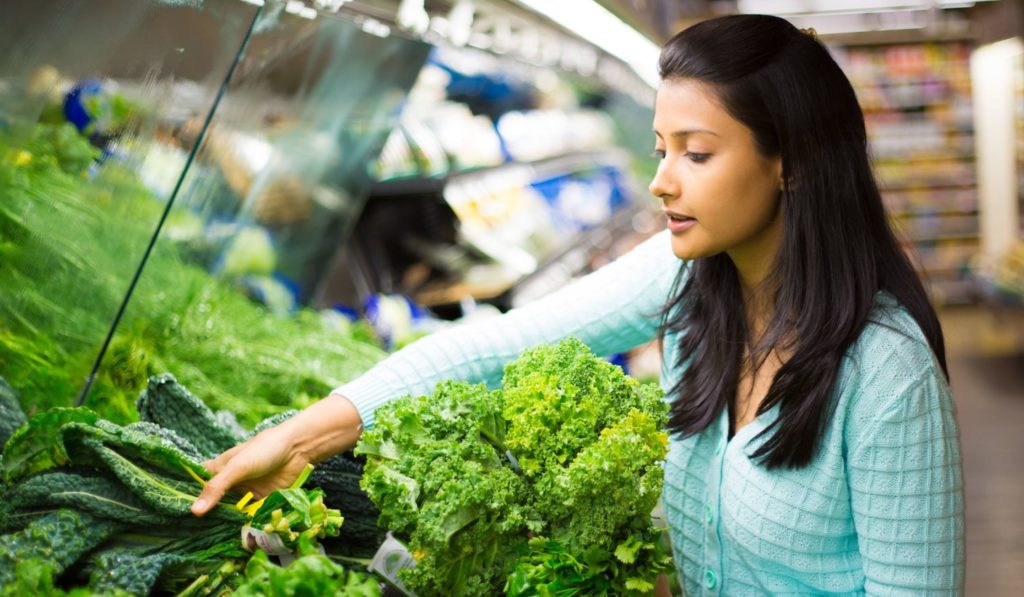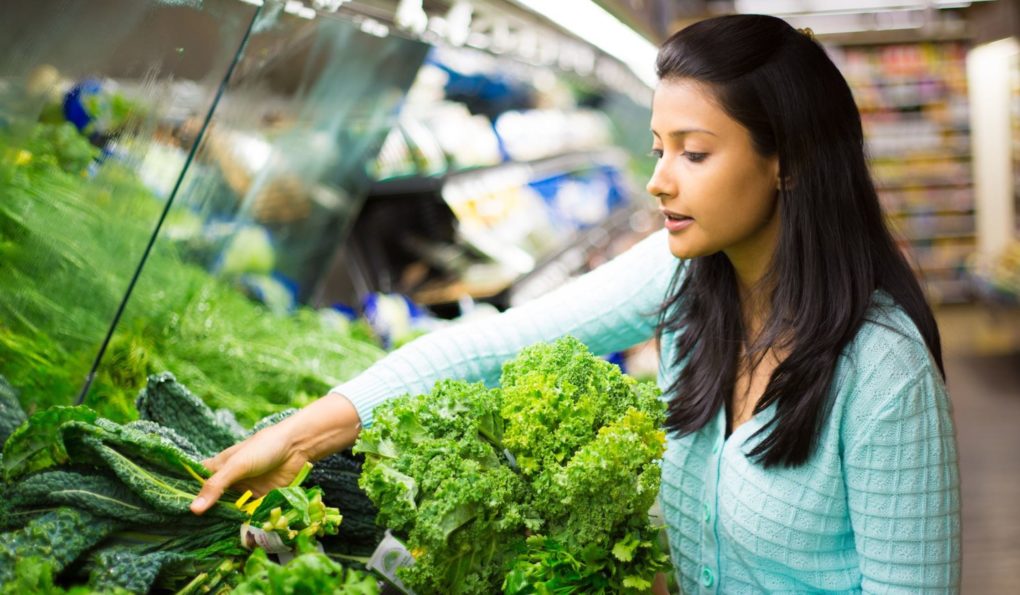60% of Kale Samples Contaminated With Cancer Causing Pesticide – Organic Is Key!
 By Arjun Walia
By Arjun Walia
- The Facts: A new analysis by the Environmental Working Group (EWG) has found a high level of Dacthal in non-organic Kale.
- Reflect On: Why do we justify the spraying of poison on our food? How does this make any sense? These substances have been linked to several diseases, how are they approved and marketed as safe in many countries? Why are they banned in so many others?
Do you still think organic is not necessary? A recent study published in the journal Environmental Research examined four families who eat conventional diets. Pesticide levels were measured via urine before switching to an organic diet for 6 days. A dramatic drop in pesticide levels was found. Another study conducted by researchers from RMIT University, published in the journal Environmental Research, found that eating an organic diet for just one week significantly reduced pesticide (commonly used in conventional food production) exposure in adults. This study found a dramatic 90 percent drop in pesticide levels. Both studies used urine samples to measure pesticide accumulation. You can access those studies and read more about them here and here.
Widget not in any sidebars
A lot of these agents were initially developed as nerve gases for chemical warfare, so we do know that they have toxic effects on the nervous system at high doses. Conventional food production commonly uses organophosphate pesticides, among many others, which are neurotoxins that act on the nervous systems of humans by blocking an important enzyme. Recent studies have raised concerns for health effects of these chemicals even at relatively low levels.
There is no question or doubt about it, organic food not sprayed with pesticides is much better for our health, and eating organic is a great way to prevent multiple diseases, including cancer. Despite all of the publications and research on this subject, it’s confusing how cancer awareness initiatives continue to focus on raising money without ever addressing the root causes of the disease, one of which is clearly exposure to herbicides and pesticides.
This is why the Environmental Working Group (EWG) advocates buying organic products. Since its inception in 1993, EWG has fought for consumers’ rights to live healthier lives in a healthier environment. EWG’s very first report in 1993, “Pesticides in Children’s Foods,” played a pivotal role in Congress passing the Food Quality Protection Act two years later. They are a well known group of scientists and activists doing great work.
Recently, they discovered that approximately 60 percent of kale samples sold in the United States were contaminated with another carcinogenic pesticide, according to the EWG’s analysis of the 2017 Department of Agriculture’s test data.
The pesticide is called DCPA, often marketed as Dacthal, and it’s a substance that the EPA classified as a possible carcinogen in 1995. In 2005, its major manufacturer voluntarily terminated its registration for use on several U.S. crops, including artichokes, beans and cucumbers, after studies found that its breakdown products were highly persistent in the environment and could contaminate drinking water sources. This is why in 2009, the European Union prohibited all uses of Dacthal, enforcing a complete ban on it. With all this being said, the fact remains that it is still used in the U.S. on crops including kale, broccoli, sweet potatoes, eggplant, turnips, and who knows what else.
Even as kale’s popularity as a health food rich in vitamins and antioxidants has soared in recent years, the level and type of pesticide residues on kale has expanded significantly. EWG’s new analysis places it third on the 2019 Dirty Dozen™, our annual ranking of the fruits and vegetables with the most pesticide residues. Recent EWG-commissioned tests of kale from grocery stores found that on two of eight samples, Dacthal residues were comparable to the average level reported by the USDA.
The USDA has not tested kale for pesticides since 2009, when it ranked eighth on the Dirty Dozen. Between 2007 and 2012, the acres of kale harvested in the U.S. grew by more than 56 percent, with more than 2.5 times as many commercial farms growing it.
Conventional kale farming relies heavily on the use of several synthetic pesticides, including Dacthal. The EPA’s 1995 classification of it as a possible carcinogen noted increases in liver and thyroid tumors. Dacthal can also cause other kinds of harm to the lungs, liver, kidney and thyroid.
According to U.S. Geological Survey data from 2016, about 500,000 pounds of Dacthal was sprayed in the U.S., mostly in California and Washington state. In California, the only state where all pesticide use must be reported, nearly 200,000 pounds were sprayed in 2016.
In states with high Dacthal use, concerns have grown about the capacity of its breakdown products to contaminate surface and groundwater. Not only can Dacthal contaminate areas near its use, but studies indicate it can also travel long distances in the atmosphere as well. (EWG)
You can read more from EWG on the subject here.
The Takeaway
Again, multiple agents can be found on non-organic produce, but this article just outlines one. At the end of the day, the choice is up to you whether or not you buy your fruits and vegetables organic. If you can afford conventional produce, you can afford organically grown produce as well. One helpful tip is to cut out junk food from your purchases if you have any, and that can make room for organic produce. Another way to look at it is spending the extra few bucks to invest in your health.
It’s unfortunate that organic food is more expensive, especially when organic food in general could be provided to the entire world if we actually utilized our fullest potential. It’s actually cheaper to produce, it’s just that governments subsidize conventional farmers, not organic ones. At the end of the day, kale is extremely nutritious. It’s high in vitamins A, K and iron, and consumption of leafy greens is associated with reduced risk of various diseases. It’s best if we keep it that way by only growing organic kale.
Arjun Walia —
This article was sourced from Collective Evolution.
Subscribe to Natural Blaze for health freedom and natural living headlines to your inbox. Follow Natural Blaze on Twitter and Facebook.



